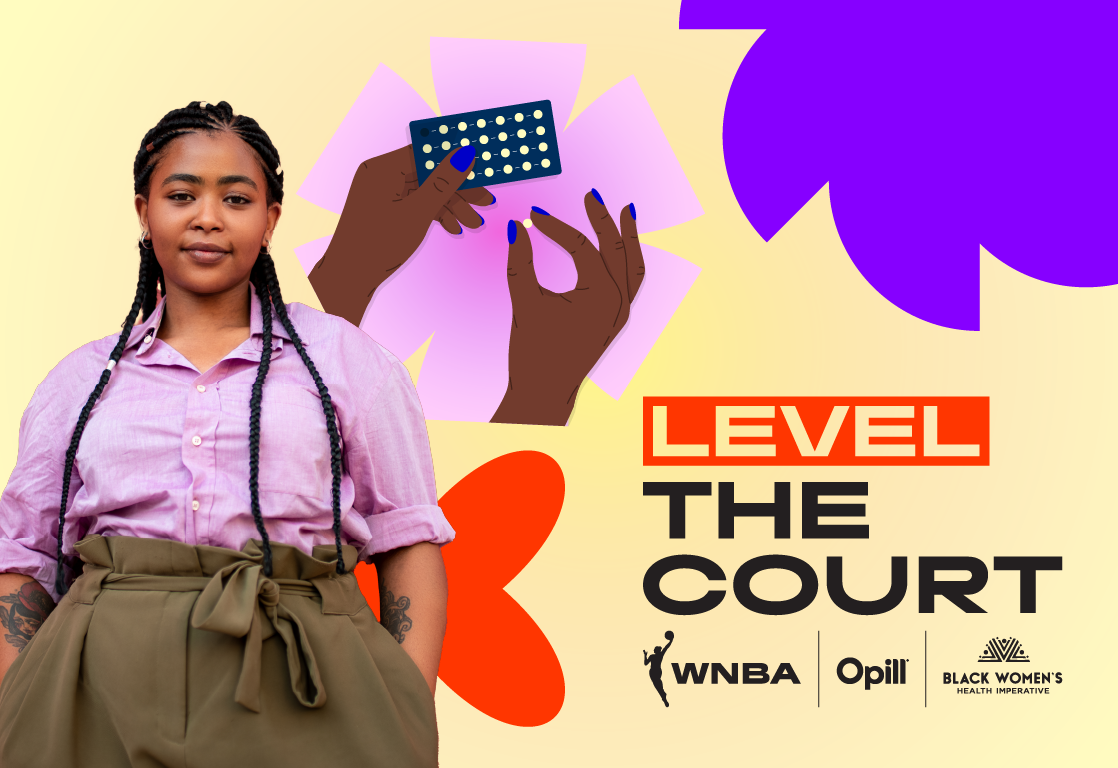Decoding Misconceptions about Birth Control
In 2019, Alyssa, a Kansas City native, was attending her freshman year of college in Washington, DC, when she needed her birth control shot administered. She went to her university’s busy hospital and waited to be seen. A nurse “looked at me, she looked at the shot, and she said, ‘You got it,’ and went on to call the next person to see her,” Alyssa, now 24, recalled. The thought of administering her own shot made her nervous because she didn’t know how to do it herself. She left the hospital without receiving adequate information or care. “That experience rattled me really bad,” she said. She scrambled for a place to receive her shot for months.
At every stage of the game, Black women deserve to have their reproductive choices supported with evidence-based information and care. But historically, factors including racism, age discrimination, stigma, and classism have prevented them from receiving adequate reproductive healthcare. The resulting barriers to care may cause and perpetuate the health disparities that leave Black women at risk for reproductive health conditions, high maternal mortality rates, and other poor health outcomes. According to the CDC, Black women are three times more likely to die from pregnancy-related causes than their White counterparts.
Misconceptions about birth control contribute to these statistics. They may take the form of inadequate information about contraception, untruths about safety and side effects, or assumptions about sexual activity. Younger women may especially be susceptible to misinformation about birth control that spreads on social media. When young people receive incomplete information about their contraceptive options and reproductive rights, it can deter them from seeking contraception. They just give up. Some “may end up in situations that are dangerous for them or that they require even more resources to get out of,” including an unintended pregnancy, said Jamarah Amani, a licensed midwife, and the executive director of the Southern Birth Justice Network.
Studies show that most young people prefer to learn about available birth control methods through a healthcare provider. They make informed decisions when they have sufficient knowledge. Jamarah believes silence around sex and reproductive health contributes to a knowledge gap among youth. “I think a lot of young people have misconceptions about what birth control is, what types there are, and at what stage they need it,” said Jamarah.
But young people need support when they do begin making reproductive decisions. The first time Chyna, 27, ever tried to get birth control, she was a 16-year-old seeking relief from her heavy periods. Although she went to the hospital with her mother, the doctor refused to give her a prescription. “He didn’t want to give me the pill or the implant, which I ended up getting from another provider,” she said.
The encounter left an imprint on her that has stuck 11 years later. “I’ll never forget his face when he said he wouldn’t do it for me,” said Chyna. “I probably will never forget how I felt.”
For women like Chyna, stigmas about sexual activity also play a role in the health disparities Black women face, whether these ideas come from their family, religious communities, providers, or society at large. Community biases against contraception can make the difference between women taking charge of their health or falling through the cracks. When Black women face judgment from their providers for seeking birth control, it can become yet another obstacle to overcome.
Women may receive additional pressure from sexual partners who believe that using birth control is morally wrong. Reproductive coercion, or interference with a person’s ability to make reproductive decisions, can look like birth control sabotage, pressure to get pregnant, or forcing or preventing pregnancy termination.
“I just think that a lot of women are a little scared to say what they want and really voice their opinions, out of fear of losing their spouse, or losing the respect of their spouse,” said Chyna. She has had two friends afraid to tell their partners they were using birth control.
Although birth control prevents pregnancy, many Black women, like Chyna and Alyssa, also use it in part to help manage acne, regulate their menstrual cycles, or ease endometriosis pain. These uses are all FDA-approved. But every woman deserves contraceptive equity and reproductive freedom, no matter their reason for seeking birth control. They own their reasons.
Decoding misconceptions about birth control also means holding space for the toll that these gaps in healthy equity can take on Black women’s mental health, in addition to other conditions they may deal with. “Reproductive health care is about more than contraception. It is about empowering women to proactively address their own health and well-being needs, educating them about the physical and mental health experiences they may encounter during their reproductive years, and providing them with access to quality support, resources, and care,” said Dr. Kensa Gunter, a licensed psychologist, and director of NBA Mind Health.
Jamarah Amani added that sometimes her clients are struggling with mental health crises, or grief due to a pregnancy loss or termination. The Southern Birth Justice Network operates a midwife clinic in Miami, Florida, where they provide evidence-based information to empower young people to be playmakers in their reproductive health. The clinic also offers the services of mental health doulas and connects people to telehealth resources to address their well-being.
Decoding misconceptions about birth control is a team effort that calls for Black women to have open, intergenerational conversations with each other and their providers, about health and sexuality, at every stage of the reproductive cycle. “I know if we had more candid and mature dialogue about it, it would be something that wouldn’t be shamed or shunned,” said Alyssa.
Many Black women find reproductive health support from their peers, which has been a long-proven tool helping Black women to thrive. Alyssa compares notes about birth control with a diverse group of queer, trans, and femme friends in their conservative home state. Chyna encourages her squad to find a contraceptive method that fits their lives and their bodies because she knows what it’s done for her.
“If I was not on birth control, I probably would have had a child earlier than what I needed or what I could have planned for,” Chyna said. “And honestly, I’m very grateful for the access that I’ve been able to have.”
Dara T. Mathis is a freelance writer who reports on reproductive and mental health, parenting, and Black history. A recipient of the 2024 American Mosaic Journalism Prize, she has contributed health-focused writing to SELF Magazine and the New York Times. Her work on this initiative supports Level The Court’s purpose to empower Black women to own their reproductive health journeys.

,xPosition=.5,yPosition=.5)
,xPosition=.5,yPosition=.5)
,xPosition=.5,yPosition=.5)
,xPosition=.5,yPosition=.5)